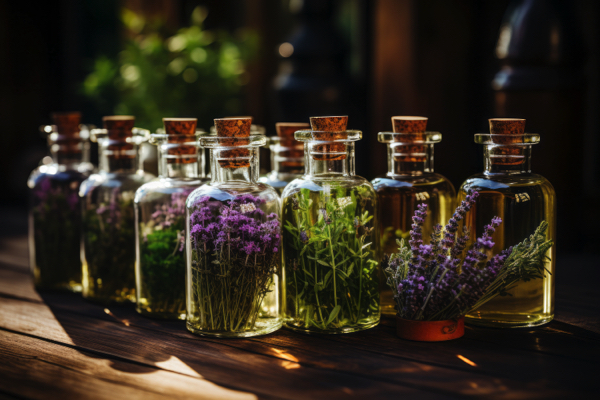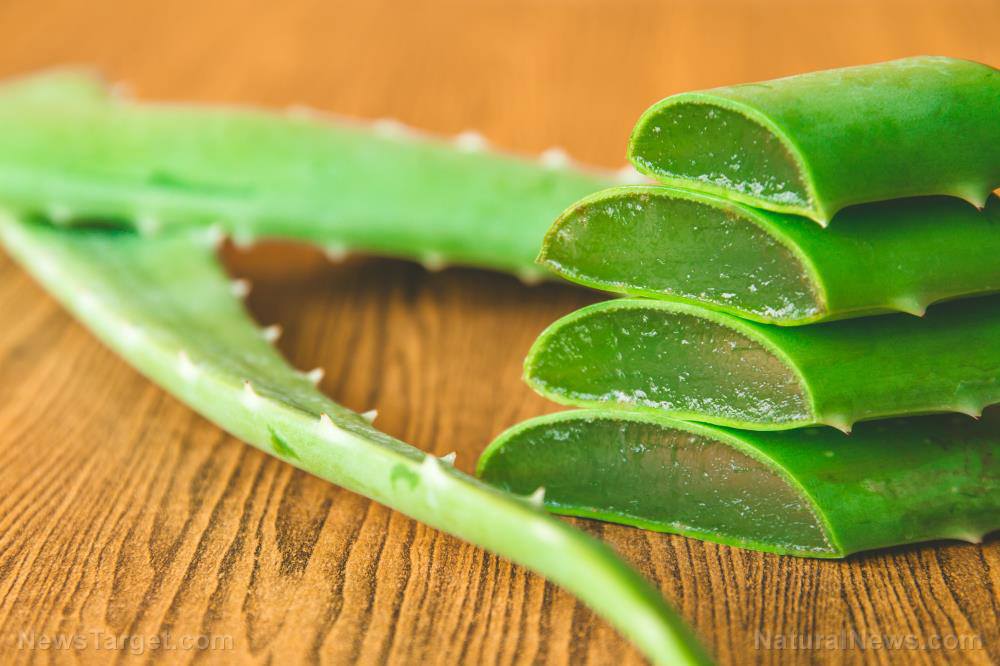 Parler
Parler Gab
Gab
- During the Black Plague in 14th-15th century Marseille, four thieves were said to have used a blend of essential oils, including clove, cinnamon, lemon, eucalyptus and rosemary, to protect themselves from the disease while stealing from the sick and dead.
- The Black Plague killed millions in Eurasia and North Africa, leading to the use of aromatic herbs and oils to purify the air and protect against disease based on the "Miasma Theory."
- Today, Thieves Oil is a popular essential oil blend in the natural health community, marketed for its antimicrobial properties, immune support and versatility in various applications.
- The oil blend contains essential oils known for their health benefits, such as clove, cinnamon, lemon, eucalyptus and rosemary, each with specific antimicrobial and immune-boosting properties.
- The historical accuracy of the Four Thieves legend is debated, with critics pointing out inconsistencies in timing, economic context, ingredients and legal punishments. Despite skepticism, the legend resonates with those seeking natural health solutions, reflecting a broader desire for holistic approaches.
The legend of the four thieves
The story of Thieves Oil is said to date back to the 14th or 15th century in Marseille, France, during one of the deadliest pandemics in human history, the Black Plague. According to legend, four thieves were caught stealing from the sick and the dead, yet they remained immune to the plague that decimated the population. When the local authorities caught them, they struck a deal: in exchange for their secret, the thieves' lives would be spared. The thieves revealed their secret: a blend of essential oils, including clove, cinnamon, lemon, eucalyptus and rosemary. They applied this blend to their hands, ears, temples, feet and masks, which they believed protected them from the disease. The authorities honored their promise, and the thieves were not burned at the stake, though some versions of the story suggest they were hanged for their crimes.The historical context
The Black Plague, which began in the 14th century, killed between 75 and 200 million people in Eurasia and North Africa. The disease was highly contagious and often fatal, leading to widespread fear and the adoption of various preventive measures. One of these measures was the use of aromatic herbs and oils, believed to purify the air and protect against disease. The use of such aromatics was rooted in the "Miasma Theory," which posited that diseases were caused by foul-smelling air or "miasmata." People would carry sachets of herbs, wear aromatic masks and burn incense to ward off the plague. The concept of a protective blend of oils, therefore, aligns with the medical beliefs of the time.The modern appeal of thieves oil
Today, Thieves Oil has become one of the most popular essential oil blends, particularly in the natural health and wellness community. Several essential oil companies market Thieves Oil as a versatile blend that can be used for everything from boosting the immune system to cleaning the home. The blend is often cited for its antimicrobial properties, which are backed by some scientific studies.The ingredients and their properties
- Clove: Known for its strong antimicrobial and antiviral properties.
- Cinnamon Bark: Contains cinnamaldehyde, which has potent antifungal and antibacterial effects.
- Lemon: Rich in limonene, which is known for its cleansing and immune-boosting properties.
- Eucalyptus: Contains eucalyptol, which is effective against respiratory infections.
- Rosemary: Known for its antiseptic and anti-inflammatory properties.
The adapted blend for modern use
For those who want to use a version of Thieves Oil on the skin, an adapted blend can be made:- Patchouli: Replaces clove and cinnamon, which can be too heating for the skin.
- Lemon: Provides a refreshing and immune-boosting effect.
- Benzoin: A sweet and comforting scent with similar properties to cinnamon.
- Eucalyptus: Offers respiratory support.
- Rosemary: Provides a calming and invigorating aroma.
The skeptical view
Despite its popularity, the historical accuracy of the Four Thieves legend is widely debated. Critics point out several inconsistencies:- Timing: The Black Plague primarily spread from 1346 to 1352, not 1413 as often claimed.
- Economic Context: By the 15th century, the European economy was more resilient, and the trade in spices and aromatics was thriving, making it unlikely that perfumers and spice traders would turn to thievery.
- Ingredients: Essential oils were rare and expensive in the 14th century, and some ingredients like eucalyptus were not known in Europe until the 18th century.
- Legal Punishment: Burning at the stake was not a common punishment for theft in medieval France.
The folklore and its impact
The Four Thieves legend, whether true or not, has captured the imagination of many. It offers a sense of historical continuity and a natural, holistic approach to health, which resonates with those seeking alternatives to modern medicine. However, it's important to approach such remedies with a critical eye, especially when they are marketed as miracle cures. The appeal of Thieves Oil in the modern context reflects a broader desire for natural solutions and a connection to past practices. In a world where health systems can feel impersonal and inaccessible, the allure of a simple, ancient remedy is powerful. However, it's crucial to balance this appeal with scientific evidence and professional medical advice, especially when dealing with serious health issues.Conclusion
The legend of Thieves Oil is a fascinating blend of history, folklore and modern-day application. Whether or not the original thieves truly concocted this blend, the modern interpretation of Thieves Oil continues to be a popular choice for those looking for natural health solutions. As with any health product, it's important to use essential oils safely and responsibly, and to consult with healthcare professionals for serious medical conditions. The story of the Four Thieves serves as a reminder of the enduring human quest for health and wellness, and the power of folklore in shaping our beliefs and practices. Sources include: AwakeningPeakBotanicals.com YoungLiving.com Soothe-me.com DeathScent.comUnveiling the mystique of vetiver: An essential oil for wellness
By Laura Harris // Share
Aloe vera: Top uses for this easy-to-grow plant
By News Editors // Share
Eleven steps to revitalize the practice of medicine
By News Editors // Share
None of the 70,000 adverse events of puberty blocking drugs were a “safety priority” for Biden’s FDA
By News Editors // Share
PROGRESS: Louisiana will no longer promote mass vaccination
By Belle Carter // Share
Governments continue to obscure COVID-19 vaccine data amid rising concerns over excess deaths
By patricklewis // Share
Tech giant Microsoft backs EXTINCTION with its support of carbon capture programs
By ramontomeydw // Share
Germany to resume arms exports to Israel despite repeated ceasefire violations
By isabelle // Share










